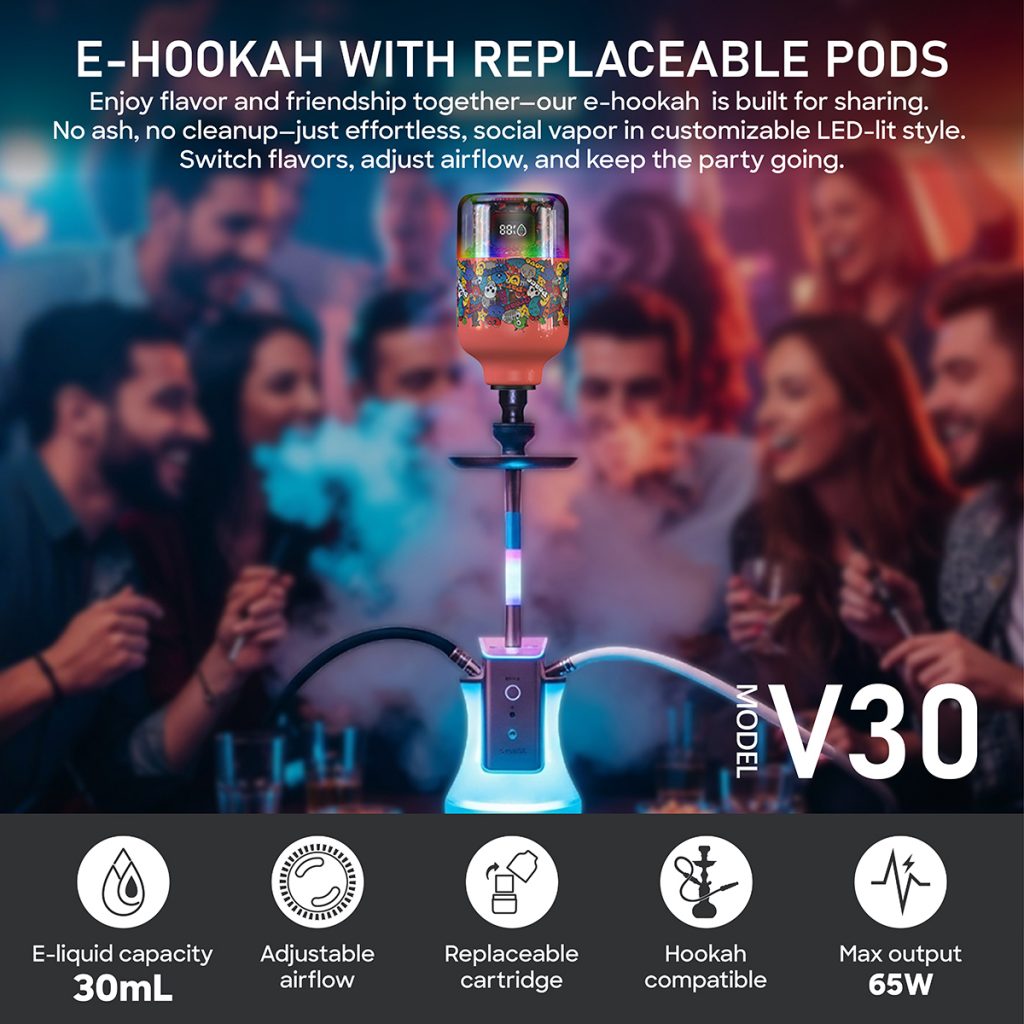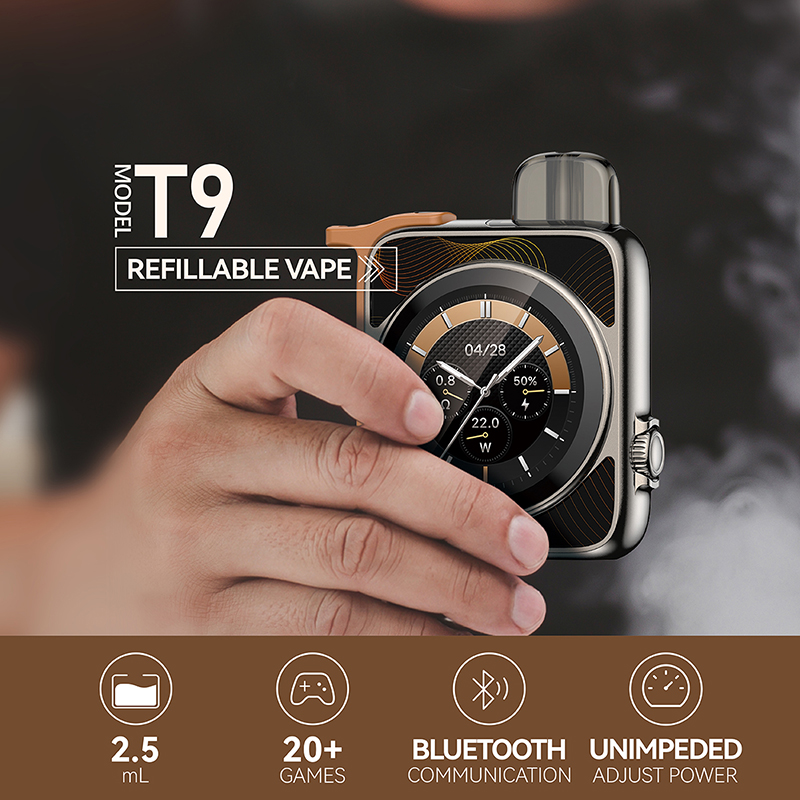Recent changes to Texas’ e-cigarette laws have drawn widespread attention from the industry, public health communities, and consumers. The state passed Senate Bill 2024 (also known as SB 2024), which prohibits the sale and marketing of THC-containing e-cigarettes, disposable devices, and certain e-cigarette products manufactured and exported from China, effective on a specific date. This move is seen as a landmark policy in a major tightening of regulations on e-cigarettes and their flavored or specialty packaging. Supporters argue it will reduce youth exposure and curb the public health crisis. However, opponents warn that while well-intentioned, the law could spur a rapid expansion of the illegal market, leading to a proliferation of harder-to-regulate and potentially more dangerous products.
The new law explicitly prohibits the sale of e-cigarette products containing marijuana or marijuana derivatives (including but not limited to THC, THC-A, and Delta-8). The new law makes any disposable e-cigarette (e-cigarette) or pre-filled cartridge device illegal if manufactured or filled in China or a country deemed a “foreign adversary,” even if it only contains nicotine. Packaging designs must not feature elements likely to attract minors, such as cartoons, candy-like images, bright colors, or designs resembling toys or pens. Violations could result in a Class A misdemeanor, punishable by a hefty fine or up to one year in prison. The regulations restrict sales and marketing, but do not make possession illegal.
Following the announcement of the regulations, smoke shops, convenience stores, gas station shelves, and online merchants reacted swiftly. Many disposable e-cigarette products were forced to be removed from shelves, and inventory was liquidated. Store owners expressed that the policy came swiftly and profoundly: some popular models were still selling well before the regulations took effect, but were completely removed from shelves upon the announcement. Most stores said they anticipated losses, and some have already closed or downsized operations. Some consumers express confusion and dissatisfaction with alternatives, believing that legal e-cigarette substitutes are being marginalized by the law.

While public health and legal experts support this policy, they also issue warnings. They argue that while banning disposable e-cigarettes and THC products can legally reduce access to certain tempting products for adolescents and minors, this “all-out ban” approach could fuel the circulation of black market products. Illegal markets often lack quality control and transparency regarding ingredients, and may even contain dangerous additives or unknown ingredients, making the production and sale of these products extremely difficult to regulate. Experts believe that if this policy is not accompanied by strengthened enforcement capacity, regulatory resources, consumer education, and legal access to alternative products, illegal channels will fill the gaps left by legal prohibitions. Some lawyers point out that store employees or small businesses may inadvertently violate the law, and the vague legal standards for designs such as those that “resemble toys or pens” could lead to inconsistent enforcement.
The impact on the economy and industry is clear. Tobacco shops and convenience store operators say their purchasing and inventory plans have been forced to change. Many businesses, particularly in small towns or sparsely populated areas, that previously relied on disposable e-cigarette sales for profitability, are facing a sharp decline in revenue. Some businesses estimate that e-cigarettes account for 20% or more of their total sales. A ban on these products would impact their entire supply chain. Consumers may shift from in-store purchases to online alternatives, or even turn to uncensored, illegal platforms.
Proponents of the law see positive aspects. From a public health perspective, restricting e-cigarette categories and packaging that are likely to appeal to minors is crucial for preventing youth e-cigarette use and reducing the rise in addiction rates. Disposable devices are particularly easy to smuggle into schools and public places because they are small, concealed, pre-filled, and convenient to use. Banning the sale of these products would help reduce minors’ exposure to e-cigarettes. The law also encourages more controlled e-cigarette product types, such as refillable, open-system devices, and e-liquids purchased from reputable, legal manufacturers, which generally offer more consistent ingredient standards and a more consistent user experience.
Amidst this policy shift, some brands have chosen to pursue a legal, compliant, and sustainable path. These brands stand out under the weight of legal pressure. The VEEHOO e-cigarette brand is a noteworthy example. From the outset of product design, VEEHOO prioritized compliance, transparency, safety, and alternative uses for adult smokers. They avoid flavoring, packaging, or marketing methods that might attract minors. Their devices are typically refillable or open systems, not disposable pre-filled devices. They also avoid products manufactured in legal gray areas or high-risk countries. This approach enhances their ability to survive in a strict regulatory environment and provides a responsible choice for adult smokers.

VEEHOO’s market position targets users who are looking to transition from traditional combustible cigarettes and reduce harm without becoming embroiled in legal and public health controversies. Their products feature clear e-liquid ingredient labeling, adhere to high production and quality testing standards, and maintain ongoing communication and close contact with regulators to ensure their product line remains legal and compliant in this ever-changing regulatory landscape. For example, after Texas law banned disposable devices and THC-containing products, VEEHOO had a chance to maintain its position in the market by offering only products with open systems, legal origins, legal manufacturing countries, and adherence to packaging regulations and age verification.
In addition, the VEEHOO brand has also performed well in consumer education. They typically do not portray e-cigarettes as a “healthy” alternative, but rather as a less risky option, emphasizing that traditional cigarettes still pose significant risks. Educational materials often include information on smoke-free alternatives, how to use them safely, how to manage nicotine dependence, and when to seek professional help. This transparency and accountability helps build trust between the brand and the public and helps regulators recognize the legitimate side of the industry.
After the law is implemented, the market may develop several potential trends: First, demand for licensed e-cigarettes will increase through legal channels, with compliant brands like VEEHOO potentially attracting more adult users. Second, the illegal or gray market may expand, as demand for banned products persists. Once offline stores sell out or the product is banned, consumers will seek alternatives. Third, friction and inconsistencies between regulations and enforcement will emerge, particularly regarding how to determine whether a product’s appearance resembles a toy or pen, how to define “foreign products” and “foreign adversary countries,” and whether online cross-state or cross-border e-commerce can evade regulations.

Experts recommend that supporting measures must be implemented more quickly. These recommendations include increasing enforcement resources and providing clear training for retailers; promoting consumer education to ensure users understand which products are banned; encouraging innovative legal brands to offer alternatives; further refining the legal text to reduce ambiguity; and strengthening oversight of online sales and cross-border imports. Technical considerations include electronic product serial number tracking, label scanning and verification, age verification technology, and mechanisms to review device manufacturing and country of origin.
Overall, Texas’s comprehensive ban on most disposable and THC e-cigarette products represents a more radical step in tobacco control policy. It has the potential to significantly reduce youth exposure to problematic e-cigarette products and reflects public health professionals’ heightened awareness of the potential harms of e-cigarettes. At the same time, if such a policy is not accompanied by strong regulation, alternatives, safety education, and transparent enforcement, it could foster the growth of an illegal market, introducing even more difficult-to-control health and safety risks.
In the future, if compliant brands like VEEHOO are recognized and given legal operating space by the government, and if public health policies and the industry work together, the negative impact of this widespread ban may be mitigated. This would protect public health and reduce harm to minors while also providing adult users with safer alternatives and moving the market towards a more regulated and responsible approach.
Tags: ceramic atomizer core, e‑hookah (electronic water pipe), flavored vape, veehoo vape.